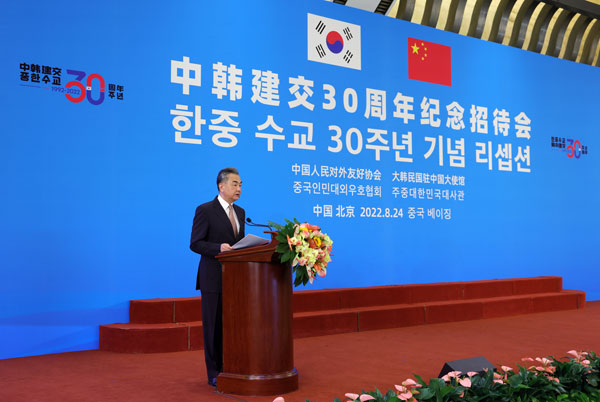
Watch the Video: China-South Korea Relations in Uncertain Times
Watch the Video: China-South Korea Relations in Uncertain Times
The Jamestown Foundation is pleased to host a forthcoming webinar on “China-South Korea Relations in Uncertain Times” on Friday, October 7 at 9:30 AM EDT.
South Korea has long carried out a difficult balancing act of relying on the U.S. as its primary military ally and China as its top economic partner. In May, President Yoon Suk-yeol assumed office following a narrow electoral victory. On the campaign trail, Yoon, a conservative, promised to seek deeper ties with the U.S. and to adopt a tougher approach to China. However, in office, he has taken a more middle-of-the-road approach to navigating U.S.-China competition. For example, Yoon avoided meeting with U.S. Speaker Nancy Pelosi when she stopped in South Korea after her visit to Taiwan in August. However, the Ministry of Defense also recently approved the lease of an additional 98 acres of land to “normalize operations” of U.S. Terminal High Altitude Area Defense (THAAD) systems in South Korea. The expansion of THAAD sites marks a departure by Yoon from the “three nos and one restriction” formula for relations adopted by Beijing and Seoul during the previous Moon Jae-in administration: no additional THAAD deployments; no participation in a U.S.-led missile defense network; no involvement in a trilateral military alliance with the U.S. and Japan; and restriction on the use of deployed THAAD systems. In a recent New York Times interview, Yoon stressed that “our defense system is to deal with the North Korean threat, not China or other countries.” However, China has consistently stated that THAAD’s presence in South Korea undermines its strategic interests.
The THAAD issue is just one of several geopolitical factors clouding China-South Korea relations. Despite reaching an agreement on fisheries in 1998, China and South Korea have never officially demarcated their maritime boundary in the Yellow Sea. Illegal fishing, as well as the growing PRC naval presence in these waters, have become a major source of friction. Finally, North Korea remains a major variable in China-South Korea relations. China remains a key external actor that influences both inter-Korean relations and North Korea’s receptivity to international negotiations over its nuclear arsenal.
The Jamestown Foundation has invited two leading analysts to discuss the current state and outlook for China-South Korea relations, as well as to assess the implications of the relationship for broader regional dynamics.
Featuring
Darcie Draudt
Postdoctoral Research Associate, Princeton School of Public and International Affairs
Joshua Park
Senior Researcher, IAS (Institute for Asian Strategy), Seoul, South Korea
Moderator
John S. Van Oudenaren
Editor-in-Chief, China Brief; China Program Manager, The Jamestown Foundation
Speaker Biographies
Darcie Draudt is a Postdoctoral Research Associate at the Princeton School of Public and International Affairs. She also holds nonresident fellowships at the George Washington University Institute for Korean Studies (GWIKS), the Korea Economic Institute, and the National Bureau of Asian Research. A political scientist and foreign policy analyst, Dr. Draudt publishes broadly on South and North Korean domestic politics and foreign policy, inter-Korean relations, and U.S.-Korea policy. She holds a PhD in Political Science from the Johns Hopkins University, an MA in Korean Studies from the Yonsei University Graduate School of International Studies, and an AB with Honors in Anthropology from Davidson College.
Joshua NamTae Park is a Senior Researcher with the IAS (Institute for Asian Strategy), Seoul, and a retired ROK navy captain with a Ph.D. from Texas A&M University. In addition to his sea duty experience, he has also worked for ROK MND and recently for KIDA (Korea Institute for Defense Analyses). He specializes in China’s and North Korea’s security and military affairs. He is currently a visiting scholar in Taipei, Taiwan. He recently published an article in China Brief entitled “China Pushes for Maritime Preeminence in the Yellow Sea,” which is based on his experience serving in the Republic of Korea Navy and subsequent scholarship.


